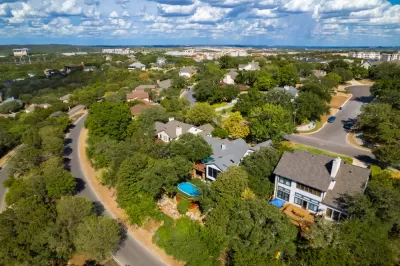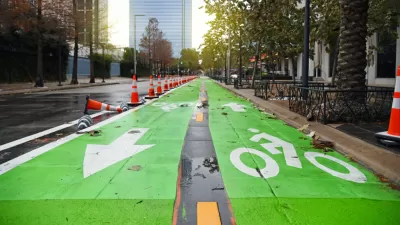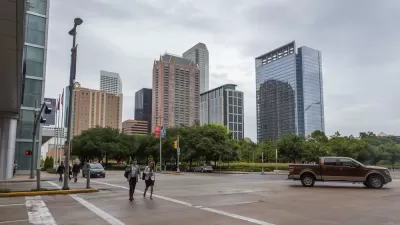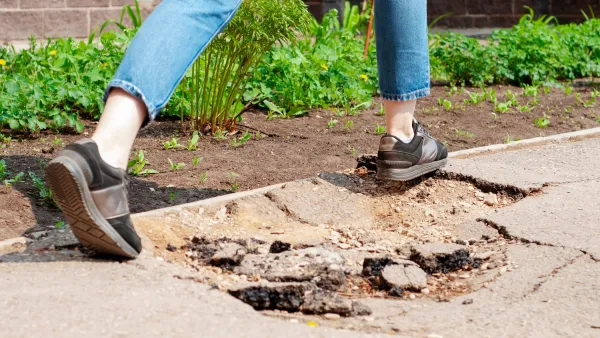Developers and homeowners might be able to opt-out of the Houston’s sidewalk ordinance under legislation under consideration by the Houston City Council this week.

The city of Houston is considering a “sidewalk-in-lieu-fee” that would allow homeowners and developers to pay a price to opt-out of the city’s sidewalk ordinance, according to an article by Yilun Cheng paywalled by the Houston Chronicle.
“Under current regulations, property owners and developers are required to build a sidewalk in front of a property unless the project meets certain exemptions,” according to Cheng. “With the new measure, applicants can choose to pay a fee of $12 per square foot if the required sidewalk construction is unsuitable or unfeasible. The fees would go into a new fund, which is expected to generate $1.7 million a year for the city to build sidewalks in a cohesive manner.”
The ordinance would split the city into 17 areas—70 percent of sidewalk-in-lieu-fees collected in each area would be allocated in the same area. The remaining 30 percent could be used citywide. David Fields, chief transportation planner at the Houston Planning and Development Department, is quoted in the article saying the fee system is intended to balance the need for sidewalk projects throughout Houston.
According to the Greater Houston Builders Association, which has advocated for the $12 per square foot fee, “a large tree, a drainage system or an open ditch” can sometimes make it implausible to build a sidewalk in front of a house. Greater Houston Builders Association Chief Executive Officer Aimee Bertrand is quoted in the article saying the fee will help bring down the cost of housing in the city.
FULL STORY: Houston's plan to avoid orphan sidewalks would let developers opt out of building them

Maui's Vacation Rental Debate Turns Ugly
Verbal attacks, misinformation campaigns and fistfights plague a high-stakes debate to convert thousands of vacation rentals into long-term housing.

Planetizen Federal Action Tracker
A weekly monitor of how Trump’s orders and actions are impacting planners and planning in America.

In Urban Planning, AI Prompting Could be the New Design Thinking
Creativity has long been key to great urban design. What if we see AI as our new creative partner?

Cal Fire Chatbot Fails to Answer Basic Questions
An AI chatbot designed to provide information about wildfires can’t answer questions about evacuation orders, among other problems.

What Happens if Trump Kills Section 8?
The Trump admin aims to slash federal rental aid by nearly half and shift distribution to states. Experts warn this could spike homelessness and destabilize communities nationwide.

Sean Duffy Targets Rainbow Crosswalks in Road Safety Efforts
Despite evidence that colorful crosswalks actually improve intersection safety — and the lack of almost any crosswalks at all on the nation’s most dangerous arterial roads — U.S. Transportation Secretary Duffy is calling on states to remove them.
Urban Design for Planners 1: Software Tools
This six-course series explores essential urban design concepts using open source software and equips planners with the tools they need to participate fully in the urban design process.
Planning for Universal Design
Learn the tools for implementing Universal Design in planning regulations.
Appalachian Highlands Housing Partners
Gallatin County Department of Planning & Community Development
Heyer Gruel & Associates PA
Mpact (founded as Rail~Volution)
City of Camden Redevelopment Agency
City of Astoria
City of Portland
City of Laramie





























